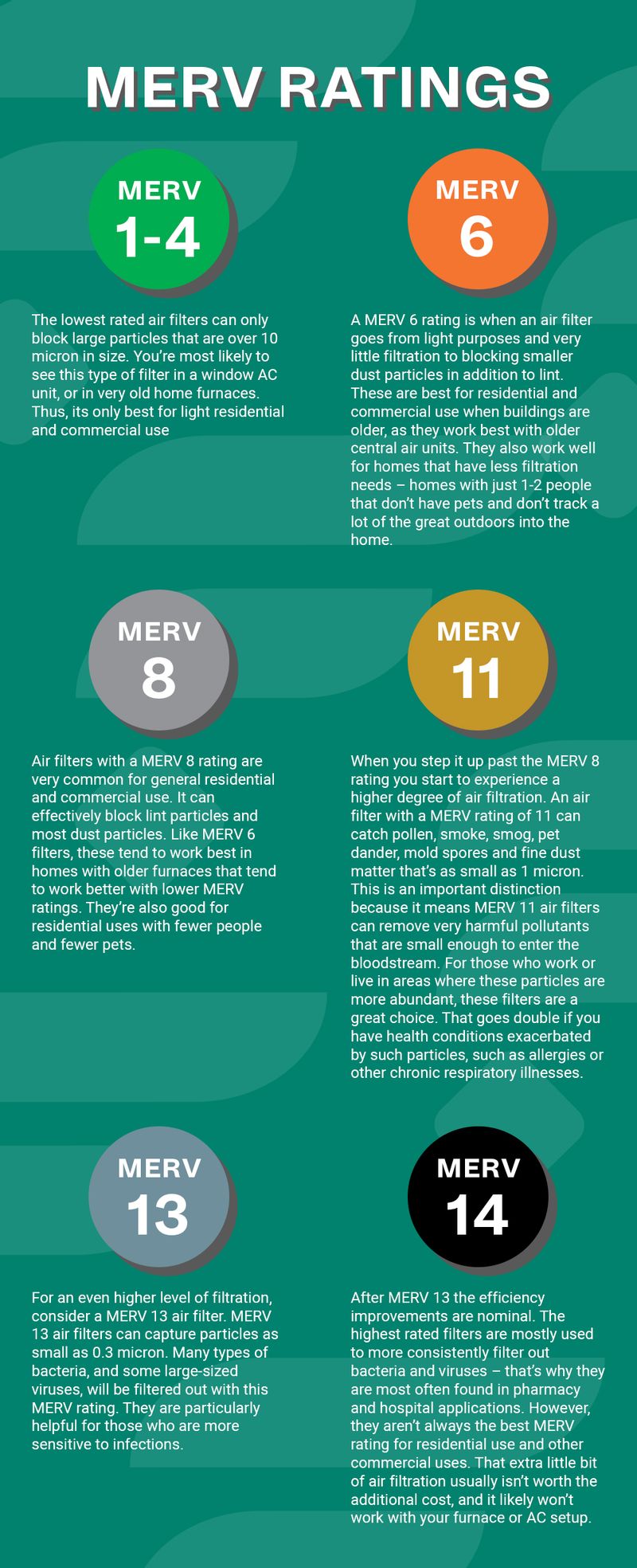Air Filter MERV ratings

The MERV rating was originally designed by the American Society of Heating, Refrigerating, and Air-Conditioning Engineers (ASHRAE) to rate air filters by effectiveness. It is an abbreviation for Minimum Efficiency Reporting Value, which is calculated by comparing a filter’s efficiency to the particle size it can capture.
On a scale of 1 to 20, the higher the MERV rating, the more efficient a filter will be at capturing airborne particles such as dust, pollen, and mold. It’s crucial to understand what MERV ratings mean so that you can select the proper filter for your building.
The best MERV rating for residential use depends on a few things:
- The local environment
- How often you use the HVAC system
- If anyone in the home has respiratory problems
- Whether there are pets or smokers in the home
- Your air filter budget
Generally, a MERV rating between 6-13 meets the needs of most residences. This range offers a good balance between air filtration, air flow and affordability. If you select an air filter with a MERV 13 rating, it can last up to six months before needing to be replaced.
The best MERV rating for residential use is the one that adequately cleans the air in your home without decreasing the air flow and straining your HVAC equipment.
MERV ratings and air flow go hand-in-hand like they do with air quality. Air filters with the highest MERV ratings are constructed to catch the smallest of particles and tend to be thicker. The denser and more tightly woven the fibers of an air filter are, the harder it is to push air through them. That means the HVAC system must work harder to move air when a filter with a high MERV rating is used. Some systems are equipped to handle this, but if not, the result will be reduced energy efficiency, increased utility bills and decrease the longevity of your HVAC equipment.

5.0 (42 Reviews)
Smits Solutions
6205 Enterprise Dr., Suite A
Diamond Springs, CA 95619
530-622-8446
www.smitssolutions.com
